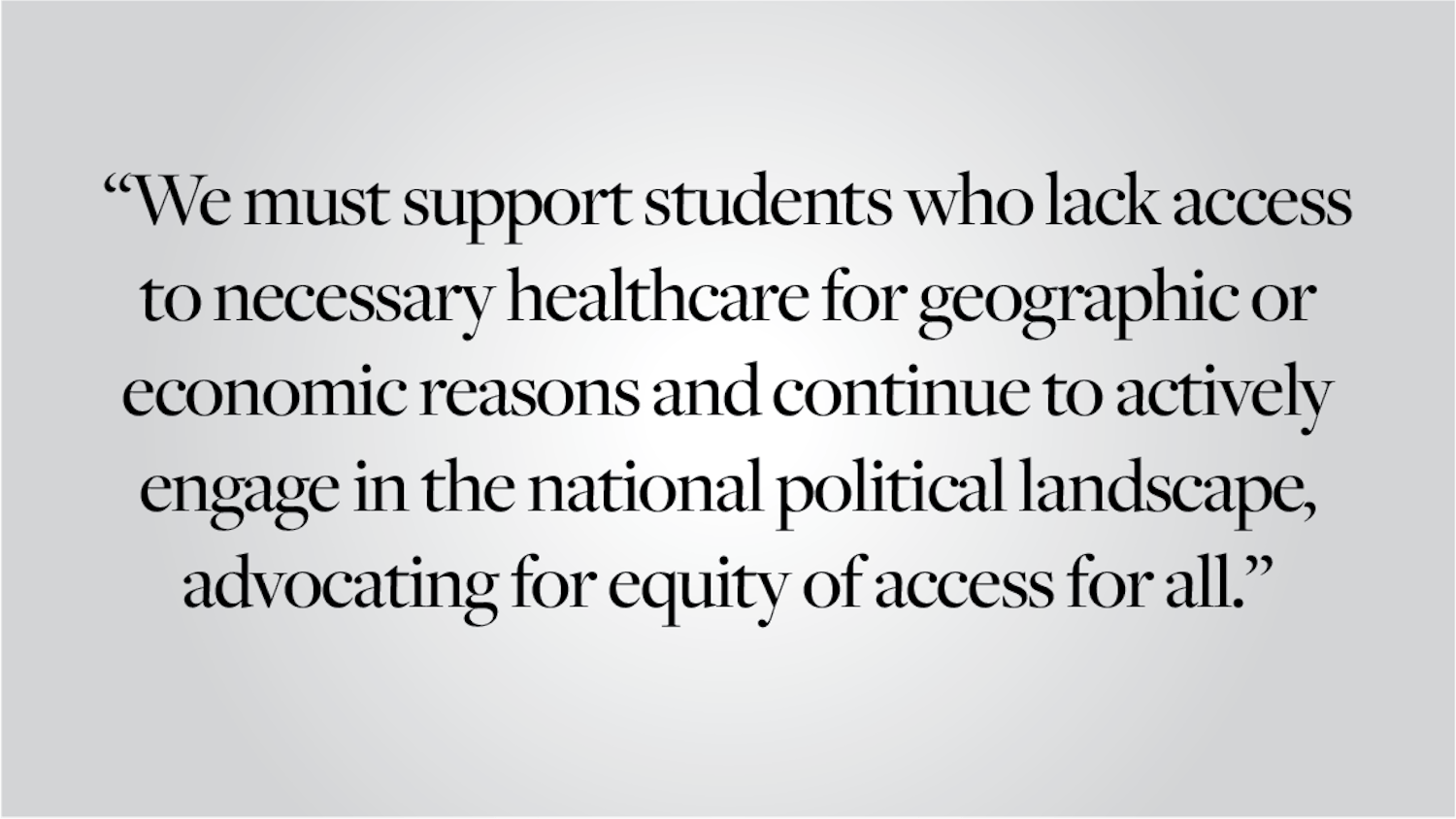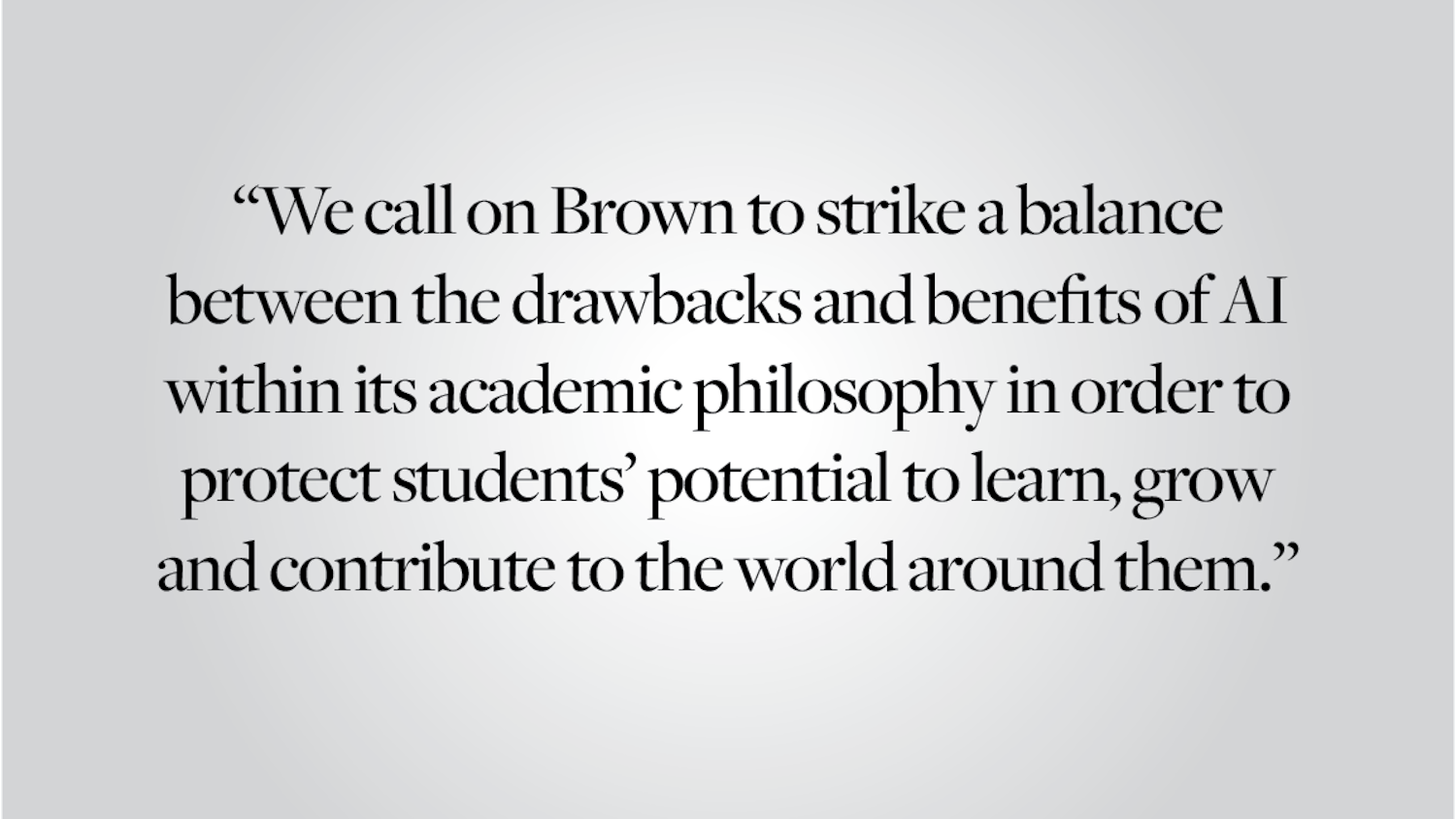The upcoming Undergraduate Council of Students elections provide a valuable opportunity for the Brown community to shape the character of student leadership on campus — an impact that is all too often overlooked.
Thursday’s debate offered a window into the platforms of both the UCS presidential and vice presidential candidates. The three presidential candidates — Justice Gaines ’16, Sazzy Gourley ’16 and Zachary Nelkin ’17 — and two vice presidential nominees — Alana Bhatla ’16 and Ryan Lessing ’17 — grappled with issues including sexual assault prevention, minority faculty representation and the underlying nature of UCS governance. In parsing through the candidates’ discussion, The Herald’s Editorial Page Board firmly believes that the following issues must serve as the priorities for the incoming UCS president and vice president: implementing new policies surrounding sexual misconduct, mental health resources and financial aid, as well as rebuilding mutual trust between students and the administration.
Candidates largely agreed on these priorities for next year’s student representatives at the debate. Sexual assault, mental health and financial aid were predictable buzzwords in both the presidential and vice presidential debates. This is not surprising, as the UCS Fall Poll last October found these three to be the most important issues to students. Financial aid has consistently been a key topic in recent UCS elections and annual polls.
Given the similarities in priorities across candidates, it is crucial that in weighing candidates, we think less about what they raise as concerns and more about what specific solutions they propose. It is also important to look at what they see as second- and third-tier issues. Fresh ideas to problems we are not necessarily talking about can still have a meaningful impact on Brown and are often more realistic goals.
While addressing the major issues is admirable, the obstacles should not be underestimated or willfully ignored. The coming year will present the challenge of proper implementation of the Task Force on Sexual Assault’s recommendations, ensuring that student feedback shapes their execution and that policy changes are reflected in practices. Even with revised sexual misconduct and mental health policy, we should remember effects will not be seen immediately. Moreover, the debate will continue, and UCS will have to reconcile debates between student activists and administrators. On financial aid, we all want Brown to offer more support and universal need-blind admission, but with limited funds and increasingly expensive tuition, we must force candidates to account for the fiscal realities.
The pragmatic solutions to addressing these key issues on campus ultimately hinge on the efficacy of the individuals elected UCS president and vice president. Past candidates for these positions have often failed to deliver on their promises. While the debate provided a forum for candidates to articulate policy platforms, these aspirations will be hamstrung by administrative bureaucracy. The next set of UCS leaders must be able to operate in these traditional administrative venues without losing sight of stated goals. Despite the apparent overlap in the candidates’ key talking points, it is critical that voters remain aware of the differentiated manner by which they hope to resolve these issues and those that receive less attention.
This is the second editorial in a three-part series on UCS elections. The endorsement of the UCS presidential and vice presidential candidates will be published in Tuesday’s Herald.
Editorials are written by The Herald’s editorial page board: its editors, Alexander Kaplan ’15 and James Rattner ’15, and its members, Natasha Bluth ’15, Manuel Contreras ’16, Baxter DiFabrizio ’15, Mathias Heller ’15 and Aranshi Kumar ’17. Send comments to editorials@browndailyherald.com.
ADVERTISEMENT




